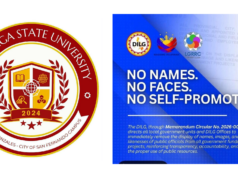- Improving digitalization and enhancing supply chain sustainability identified as the two biggest areas of planned investment
- 98% of PH companies have established sustainability targets, with 22% planning to invest at least USD 1M or more into sustainability in the next 2 years
- In Asia, sustainability is a high priority for 60% of business leaders, and nearly half have established comprehensive strategies and targets
MANILA, PHILIPPINES – Schneider Electric, the leader in the digital transformation of energy management and automation, announced findings from its annual Green Impact Gap survey. It underscores Asia Pacific’s sustainability journey. According to the survey, 98% of PH companies have established sustainability targets, 22% plan to invest at least USD 1M or more towards their sustainability agenda in the next 2 years. Additionally, the primary focus for this investment includes prioritizing digitalization as a key driver of their sustainability strategies.
Schneider Electric spoke to 4,500 leaders across nine countries to gather perspectives of business leaders in the Asia Pacific region. The markets include Indonesia, Japan, Korea, Malaysia, Philippines, Singapore, Taiwan, Thailand, Vietnam. The survey was conducted with the market research company, Milieu Insight.
Digitalisation at the Forefront of Sustainability Efforts in Asia
Digitalization is emerging as a critical component of Asian organizations’ sustainability journeys. With 93% of companies currently leveraging digital tools, the survey found that technology is at the center of efforts to meet sustainability goals. The most common applications of digitalisation for sustainability are paperless operations (35%), followed by risk and opportunity management (33%) and supply chain digitisation (31%). For the Philippines, digitalization methods implemented include going paperless (42%) and limiting travel to/from office (39%).
“Digitalization is now becoming a priority for local businesses. While there are still challenges on our digital infrastructures that hinder digital inclusion and economic development, we are seeing significant shifts in terms of prioritization. Businesses now understand that digitalization will help drive operational resiliency and address achieve their sustainability agenda,” said Ireen Catane, Country President of Schneider Electric Philippines.
Sustainability: A Top Business Imperative
The survey also underscores the growing importance of sustainability in Asian companies, with 60% of business leaders now considering it a high priority. This is particularly strong in Thailand (83%), Vietnam (73%), and Indonesia (71%).
In the Philippines, while 98% have sustainability goals, only 52% of companies have implemented comprehensive sustainability strategies. Business leaders cite regulatory or economic uncertainty and internal company resourcing as key barriers to progress. When asked about their familiarity with the Philippines’ Energy Efficiency and Conservation Act (RA 11285), results show that the local business leaders are only “very to moderately familiar” with the policy. Most business leaders also expressed that they are moderately confident (44%) in meeting the terms of the policy.
Despite progress, the survey also reveals a persistent ‘Green Impact Gap’ in Asia—a misalignment between regional companies’ declared sustainability goals and the tangible actions taken to achieve them.
Navigating the Path to Net Zero
A notable difference between companies that have implemented sustainability strategies and other organizations lies in their commitment to supply chain sustainability. Nearly half (49%) of companies that have implemented strategies in Asia have identified supply chain sustainability as a key investment focus for the next two years, compared to around a third (34%) of other companies. This distinction translates into significantly higher rates of collaboration with suppliers to ensure sustainable sourcing practices and reduce environmental impact throughout the supply chain.
Survey results show that 41% of Asian firms that are implementing sustainability strategies plan to invest $1 million or more in the next two years, compared to 31% of other organizations. These efforts include navigating emerging standards and regulations.
The results also reveal that energy supply and demand volatility (56%) and fluctuating energy prices (51%) are the top energy risks for Philippine companies. In response, the companies are taking steps by adopting technologies such as energy/resource efficiency measures (49%) and digitalization of systems/operations (47%) to address these challenges and meet their energy goals.
“There is a substantial opportunity to accelerate progress and close the gap between ambition and action. This involves reassessing organizational priorities and strategically allocating resources to achieve resilience through digital transformation. We believe that sustainability drives business growth, value creation, and should be at the heart of every firm’s business strategy,” Catane added.
Schneider Electric is a global powerhouse in electrification, automation, and digitization to smart industries, resilient infrastructures, future-proof data centers, intelligent buildings and intuitive homes. It was recognized by Time Magazine as the “World’s Most Sustainable Company” in 2024 and is part of Dow Jones’ Sustainability World Index for 13 years in a row.





